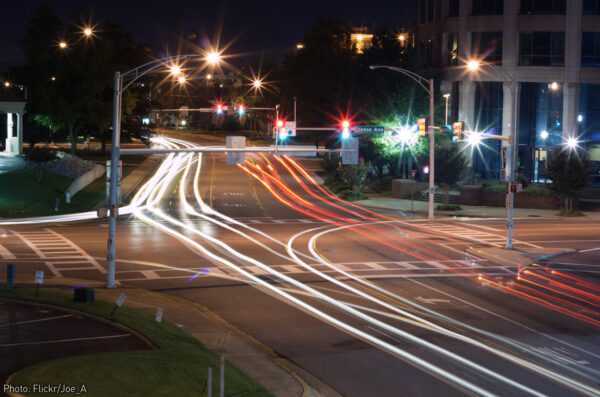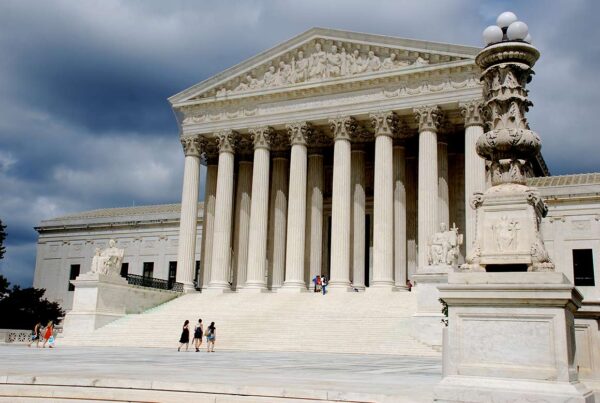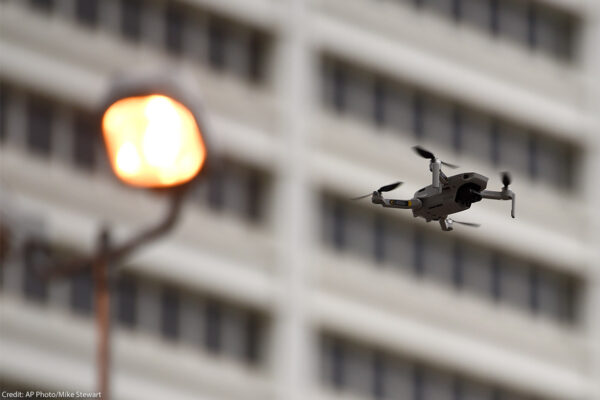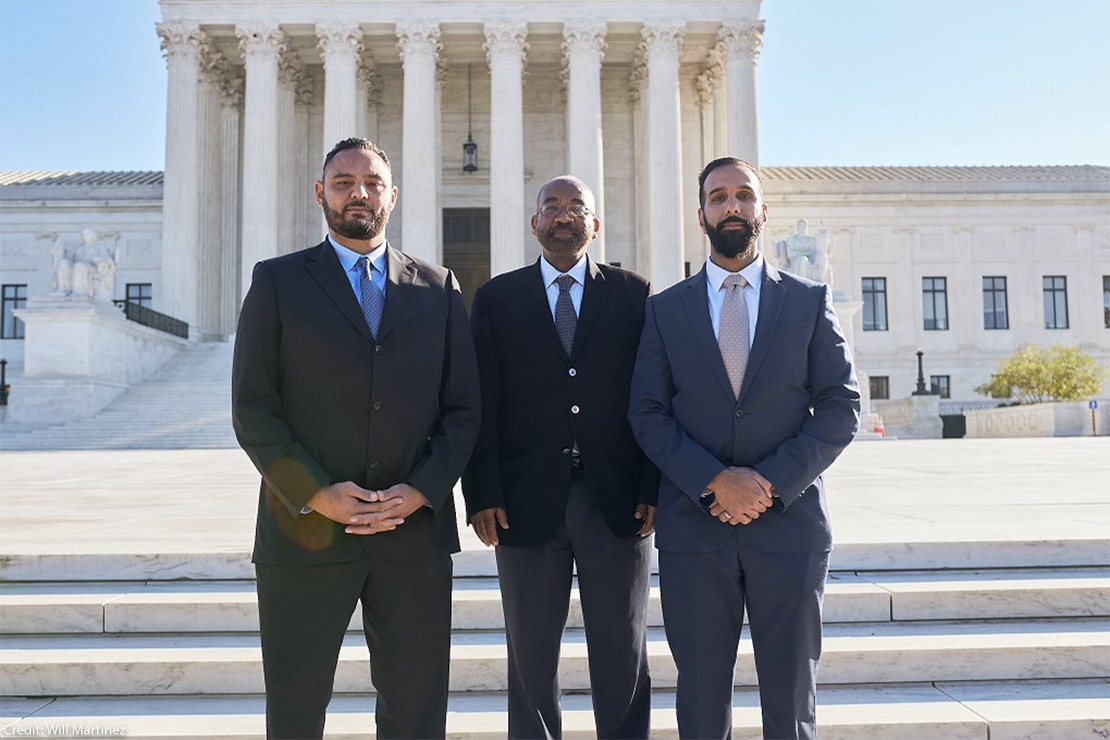Privacy & Technology
FBI v. Fazaga
In a case scheduled to be argued before the U.S. Supreme Court on November 8, 2021, three Muslim Americans are challenging the FBI’s secret spying on them and their communities based on their religion, in violation of the Constitution and federal law. In what will likely be a landmark case, the plaintiffs — Yassir Fazaga, Ali Uddin Malik, and Yasser Abdelrahim — insist that the FBI cannot escape accountability for violating their religious freedom by invoking “state secrets.” The plaintiffs are represented by the Center for Immigration Law and Policy at UCLA School of Law, the ACLU of Southern California, the American Civil Liberties Union, the Council for American Islamic Relations, and the law firm of Hadsell Stormer Renick & Dai.
Status: Closed (Judgment)
View Case
Learn About Privacy & Technology
Featured
U.S. Supreme Court
Jun 2018

Privacy & Technology
Carpenter v. United States
The Supreme Court ruled that the government needs a warrant to access a person’s cellphone location history. The court found in a 5 to 4 decision that obtaining such information is a search under the Fourth Amendment and that a warrant from a judge based on probable cause is required.
Court Case
Dec 2016

Privacy & Technology
Sarkar v. Doe - PubPeer Subpoena Challenge
The ACLU filed a motion in Michigan state court challenging the constitutionality of a subpoena issued to the website PubPeer demanding that it turn over the identities of anonymous commenters. In March 2015, the trial judge ruled that PubPeer had to unmask one – but only one – of the commenters. Both PubPeer and the researcher appealed, and the ruling was upheld in December 2016.
All Cases
70 Privacy & Technology Cases

U.S. Supreme Court
Dec 2021
Privacy & Technology
Van Buren v. United States
Whether the Computer Fraud and Abuse Act (CFAA) should be interpreted to create liability for violations of computer use policies, including website terms of service.
Explore case
U.S. Supreme Court
Dec 2021

Privacy & Technology
Van Buren v. United States
Whether the Computer Fraud and Abuse Act (CFAA) should be interpreted to create liability for violations of computer use policies, including website terms of service.

U.S. Supreme Court
Dec 2021
Privacy & Technology
Robert Andrews v. State of New Jersey
Whether the Self-Incrimination Clause of the Fifth Amendment protects an individual from being compelled to recall and truthfully disclose a memorized smartphone passcode, where communicating the passcode may lead to the discovery of incriminating evidence to be used against him in a criminal prosecution?
Explore case
U.S. Supreme Court
Dec 2021

Privacy & Technology
Robert Andrews v. State of New Jersey
Whether the Self-Incrimination Clause of the Fifth Amendment protects an individual from being compelled to recall and truthfully disclose a memorized smartphone passcode, where communicating the passcode may lead to the discovery of incriminating evidence to be used against him in a criminal prosecution?

U.S. Supreme Court
Dec 2021
Privacy & Technology
National Security
Merchant v. Mayorkas
The American Civil Liberties Union, the Electronic Frontier Foundation, and the ACLU of Massachusetts have filed a lawsuit against the Department of Homeland Security on behalf of 11 travelers whose smartphones and laptops were searched without warrants at the U.S. border.
Explore case
U.S. Supreme Court
Dec 2021

Privacy & Technology
National Security
Merchant v. Mayorkas
The American Civil Liberties Union, the Electronic Frontier Foundation, and the ACLU of Massachusetts have filed a lawsuit against the Department of Homeland Security on behalf of 11 travelers whose smartphones and laptops were searched without warrants at the U.S. border.

U.S. Supreme Court
Dec 2021
Privacy & Technology
Arthur Gregory Lange v. California
Whether the Fourth Amendment permits the police, in all cases, to pursue an individual into a private home without a warrant while attempting to make a misdemeanor arrest, or whether specific exigent circumstances are required.
Explore case
U.S. Supreme Court
Dec 2021

Privacy & Technology
Arthur Gregory Lange v. California
Whether the Fourth Amendment permits the police, in all cases, to pursue an individual into a private home without a warrant while attempting to make a misdemeanor arrest, or whether specific exigent circumstances are required.

Court Case
Dec 2021
Privacy & Technology
Free Speech
ACLU v. CBP - FOIA Case for Records Relating to Government’s Aerial Surveillance of Protesters
In December 2021, the ACLU and NYCLU filed a Freedom of Information Act lawsuit seeking information from nine federal agencies—the United States Customs and Border Protection (CBP), Drug Enforcement Administration (DEA), Department of Homeland Security (DHS), Department of Justice (DOJ), Federal Aviation Administration (FAA), Federal Bureau of Investigation (FBI), Federal Protective Service (FPS), Marshals Service (USMS), and Secret Service (USSS)—about nationwide aerial surveillance and flight monitoring of protests in 2020 following the death of George Floyd.
Explore case
Court Case
Dec 2021

Privacy & Technology
Free Speech
ACLU v. CBP - FOIA Case for Records Relating to Government’s Aerial Surveillance of Protesters
In December 2021, the ACLU and NYCLU filed a Freedom of Information Act lawsuit seeking information from nine federal agencies—the United States Customs and Border Protection (CBP), Drug Enforcement Administration (DEA), Department of Homeland Security (DHS), Department of Justice (DOJ), Federal Aviation Administration (FAA), Federal Bureau of Investigation (FBI), Federal Protective Service (FPS), Marshals Service (USMS), and Secret Service (USSS)—about nationwide aerial surveillance and flight monitoring of protests in 2020 following the death of George Floyd.
